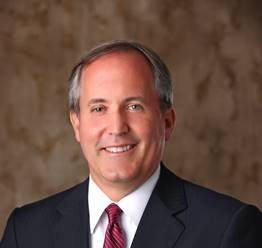Texas Attorney General Ken Paxton has dropped his threat to block major US banks from participating in municipal-bond deals after several Wall Street firms exited the Net-Zero Banking Alliance (NZBA).
Paxton’s office announced in 2023 that it was reviewing the policies of finance companies in the NZBA, a group he has repeatedly criticised. The review followed Texas legislation targeting financial institutions accused of “boycotting” the oil and gas industries. In recent weeks, JPMorgan Chase & Co., Bank of America Corp., Morgan Stanley, and Wells Fargo & Co. announced their withdrawal from the NZBA, prompting Paxton to close the reviews.
“More and more financial institutions are taking a major step in the right direction by leaving the radical and anti-energy Net-Zero Banking Alliance. The NZBA seeks to undermine our vital oil and gas industries, and membership could potentially prevent banks from being able to enter into contracts with Texas governmental entities,” said Attorney General Paxton, adding, “I am glad that Bank of America, Morgan Stanley, and JPMorgan have terminated their NZBA membership.”
The banks, which play a significant role in underwriting state and local debt in Texas—a major market for municipal bonds—will now remain eligible for such deals. Paxton’s office holds considerable sway over public bond offerings, as it must approve most deals before they can proceed.
In a statement, Paxton’s office had criticised the NZBA for promoting “destructive climate goals” that it argued conflict with banks’ duties to consumers and investors. “The NZBA seeks to undermine our vital oil and gas industries, and membership could potentially prevent banks from being able to enter into contracts with Texas governmental entities,” Paxton said.
This decision follows a broader crackdown by Paxton on financial institutions over climate-related policies. In November, he led a group of state attorneys general in suing BlackRock Inc., Vanguard Group Inc., and State Street Corp., alleging antitrust violations that increased electricity prices through their investment practices. BlackRock dismissed the allegations as “baseless,” stating it does not invest to harm companies.
The developments highlight the growing tension between Republican-led states and financial institutions over climate-related commitments, with Texas taking a particularly aggressive stance to defend its oil and gas industry.
















